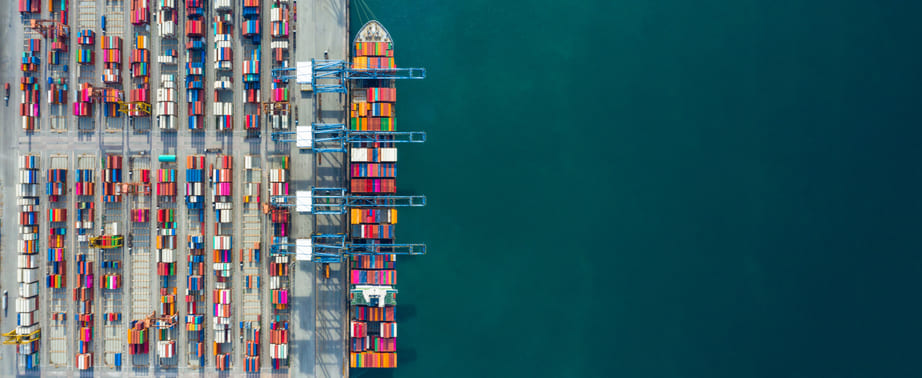LCL shipping: The ultimate guide for shipping wine
When transporting wine and other beverages, choosing the right shipping method is essential.
With all the options available, it can be challenging to figure out which option will work best for you. But if you’re looking to transport small amounts of wine, LCL shipping is the answer.
Here’s an in-depth look at LCL (less-than-container-load) shipping, how it works and why it could be the perfect choice for your wine business.
What is LCL shipping and groupage?
Unlike full-container-load (FCL) shipping, where a whole container is dedicated to just one shipper’s wine, LCL shipping allows multiple shippers to share the container.
This way, you can ship the amount needed by the importer, without having to fill a full container. Groupage is a term often used interchangeably with LCL shipping, but there’s a difference.
Companies that offer LCL shipping services are called consolidators or co-loaders. These transport providers don’t have a direct relationship with the freight payer and co-load pallets for all types of goods.
The term “consolidation” describes the process of gathering LCL shipments from different shippers to fill one container. The transporter could be a shipping line or freight forwarder.
For wine and other beverages, freight forwarders usually provide groupage services. Freight forwarders like Hillebrand Gori only load your pallets with other beverages.
This ensures the product isn’t damaged or contaminated by other goods.
Groupage service providers like Hillebrand Gori perform the following functions:
Collect beverage pallets upon confirmation from supplier.
Gather and store the pallets in their own warehouse .
Combine beverage pallets from several shippers into a container.
Transport it to destination.
Perform customs clearance and documentation management .
De-consolidate the container.
Deliver each pallet to the importer.
What are the benefits of LCL shipping?
There are several benefits to using LCL shipping for transporting wine and other beverages.
LCL shipping allows you to:
Manage cash flow better: When fewer products are warehoused, your cash flow improves because you’re not tying up money in idle stock. Additionally, fewer taxes and duties must be paid for that shipment since the total value transported is less.
Reduce freight costs: You share the cost of the container shipping with other shippers, which reduces your rate.
Respond to market trends and provide a more extensive range of products for customers: You can change your product line quickly to match what consumers want, rather than being stuck with too much inventory that needs to sell before introducing new products.
Is groupage and LCL shipping cheaper?
The cost of shipping depends on the amount of wine you want to ship.
In general, LCL shipping is cheaper than FCL if you have small shipments of wine, like a few pallets. But if you have a larger load that will fill the majority of a container (10 standard pallets), it’s more cost-effective to ship FCL because the total freight cost per pallet is cheaper.
What you need to know about LCL shipping documentation
Anytime you ship wine, beer or spirits, whether a full container or less, you need your paperwork to be correctly compiled, in order to avoid shipping delays.
The documents you need for LCL shipping depend on the types of products being moved
Documents you may need to present to clear your LCL beverages at customs include the following:
Certificate of origin (if needed)
Organic certificate (if needed)
Why Hillebrand Gori is a great choice for LCL shipments
When shipping beverages on LCL services, it’s important to use a freight forwarder like Hillebrand Gori, who can ensure your product is carefully handled.
With the right shipping solution, you can get your wine where it needs to go safely and cost-effectively. Over and above this, Hillebrand Gori understands that wine and beer are sensitive to temperature and humidity, which is why the majority of our services are insulated or refrigerated. Read more about our beverage-only LCL services, or contact us to discuss your shipping needs.

.png?sfvrsn=74cbe793_1)



